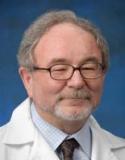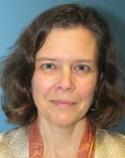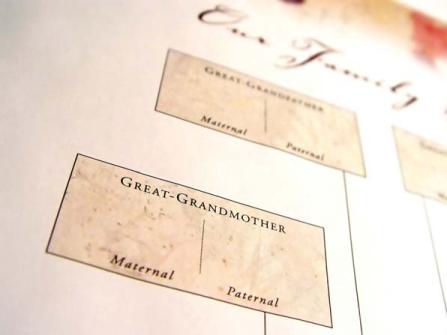Nov 03, 2014
 |
 |
|
| Frank L. Meyskens, Jr., MD, FACP |
Pamela Flodman, MSc, MS, LCGC |
By Frank L. Meyskens, Jr., MD, FACP, and Pamela Flodman, MSc, MS, LCGC
All physicians learn how to take a family history while in medical school, usually during the first year. However, this training is seldom used later during training or in practice. With the advent of the genomic era after the sequencing of the human genome in 2001, interest in the contribution of hereditary genetics to malignant disease processes has increased. Three major areas have become the focus of genetic contributions to clinically relevant oncogenic pathogenesis: risk assessment for the patient with cancer, risk assessment for family members, and effects on subsequent treatment choices.
As medical, surgical, gynecological, and other oncologists are increasingly presented with patients with newly diagnosed cancers with a defined mutation, the need to explore the family history for heritable cancers has intensified, resulting in the detailed Expert Statement: Collection and Use of a Cancer Family History for Oncology Providers.1 But where does the path forward lie? A 2009 National Institutes of Health (NIH) Consensus and State-of-the-Science statement on improving health through collection of family history is publically available and is discussed in more detail below.2 The broadest arenas are represented by system issues and practitioner preparedness; within the latter, the topics of educational activities and clinical decision making hold sway.
Taking a Family History: A Broader Mandate
The standard for documenting family history information is the pedigree, collected through direct patient interview. However, the manner in which the raw information is collected is variable in practice. A pedigree is routinely obtained in the setting of a medical genetics evaluation. However, for other specialists, familiarity with this scenario is far removed from their first year medical school coursework in medical genetics, especially because there are limited opportunities to hone this skill throughout medical school and residency training. The development of a universal approach and collection device, with easy incorporation into and access from an electronic health record (EHR), would be an enormous aid. In addition to being generally applicable in practice, tools that enable the patient to collect and document his or her own family history (for subsequent review with the patient’s physician) are essential.
The goal of the NIH consensus statement was to assess the evidence supporting family history collection as a clinical tool. The report documented that, at that time, relatively few studies addressed whether collection of a first-level family history (first and second degree relatives of the disease and age at onset) in a primary care setting will improve health outcomes in the patient (or in family members). The report also highlighted the need to learn more about how and where to collect family history, as well as about how to make best use of the information obtained. Although anecdotal information abounds, there have been only a few systematic studies, and these have shown that physicians do not always take and/or update a family history3,4 and that there is a lack of completeness of the documented family history.5,6 This is perhaps to be expected for a tool that has been in clinical use long before the recognition that its utility merits.
 |
The “My Family Health Portrait” application (familyhistory.hhs.gov) provides one tool for collecting this information that has been validated in the primary care setting.7 An intriguing and important finding of this well-done study is that the validity of the tool varied depending on the disease being reported: validity was high (94%-99% specificity) for family histories of colon, breast, and ovarian cancers but lower in connection with coronary artery disease (67%) and stroke (84%). Additional analysis of existing tools is clearly needed to implement an approach that is both practical and useful in the oncology setting.
Educating the Medical Community about the Value of the Family History
Awareness of the influence of genetics on assessment of all aspects of health and disease outcome has increased markedly in the past few years, being led by the disciplines of oncology and cardiology and extending more widely with a burgeoning effort in pharmacogenetics and pharmacogenomics.
The proper collection of a family history should be viewed as an essential component of initial and ongoing patient interactions that should be engraved in all medical school rotations and viewed as a core competency. ASCO should facilitate interaction with the Accreditation Council for Graduate Medical Education (ACGME) requirements so that family history is prominently represented in the residency and fellowship training portfolio of all disciplines. A good step in this direction has been the recent incorporation of this requirement into surgical and gynecologic residency training. It would behoove oncology fellowship training programs, whether they be medical, surgical, gynecological, or other subspecialty oncology offerings, to emulate the ACGME requirements for residents and fellows and to expand on them.
A recent study found that a majority of primary care physicians were comfortable administering a first-level screening family history; however, less than 2% felt comfortable interpreting the results vis a vis recommending cancer risk reduction, prevention, or screening tests.8 This is troubling and a sufficient basis for a call to action. Although it is understandable, these practitioners might not feel qualified to fully interpret a complicated family history, it is still critical to obtain a first-level family history in order to identify families who require referral to a specialist (typically a medical geneticist or genetic counselor). The 2013 Pre-Annual Meeting Seminar on genetics was repeated this year because of its popularity with attendees. Expansion of this effort to include a family history component and an online, interactive, family history-taking activity would seem worthwhile to develop aggressively because the majority of patients with cancer are being seen by oncologists who are long out of their training experience. To address this concern, the QOPI initiative, for example, has incorporated competence in family history assessment as one of its core metrics as a mechanism to engage active clinicians.
System Issues: Platforms and the Electronic Health Record
Although the information needed to prepare an accurate family history is relatively clear, its initial collection from a patient with newly diagnosed cancer can be quite difficult and time consuming for several reasons:
- Stress produced by the diagnosis of cancer
- Limited knowledge of the health history of family members
- Inaccurate or false memory of second- and earlier-generation events and the complexity inherent to blended families
- Identification of who should collect this information.
Regarding administration of the collection, most oncologists are already overburdened and some feel ill-prepared to perform the collection. The alternative—medical geneticists or genetic counselors—are in short supply.
Optimally, the best situation is one in which the primary care physician has already collected the first-level family history. Because that would be uncommon (or not easily assessable) at the current time, a division of labor should occur. The oncologist (or a health care provider on the team with specialized certificate training) would collect a first-level family history on all patients and use this to identify those patients who require referral to a medical geneticist or genetic counselor.
Further complicating these decisions is that the collection methods vary, and electronic medical records use a wide range of platforms to capture these data. In an Expert Editorial from last year’s ASCO Daily News, Robert Miller, MD,9 reviewed the development of EHRs as a tool for meaningful use. Dr. Miller noted, “If physicians, particularly frontline clinicians, are not engaged in EHR assessment, implementation, and optimization, Health Information Technology will be an abject failure.” Perhaps with time an interactive approach can be developed to allow collection of the essential data in a user-friendly manner and initially completed by the patient and family members. This information could then be stored electronically in a standard format for easy viewing by the primary oncologist. Disappointingly, even in medical genetics clinics, there is no gold standard for electronic collection and storage of family history, although various such programs exist or are in development. It is time to integrate this approach into the oncology clinic.
Assessing and Managing Genetics and Genetic Risk in Patients
Evaluation of the cancer for muta-tional changes rests squarely with the treating oncologist in consultations, held as needed, with experts in the relevant tumor type. Obtaining the first-level family history of cancer in one’s patient would seem to be straightforward, notwithstanding the platform and system issues discussed previously. It seems unlikely that the already overburdened primary oncologist will undertake this task routinely. Several possibilities should be considered.
- Patient (and family) interface: An intelligent and interactive program with a user-friendly interface would allow patients or their families to enter the relevant data and would result in the automatic conversion to a pedigree.
- Referral to a medical geneticist or genetic counselor: This would be a reasonable approach, except that many oncology practitioners do not have such a person in their immediate network. It might make more sense for the clinical oncologist to use the first-level screening family history to identify families who must be referred.
- Implementation of an EHR prompt for the oncologist (or another team member) to obtain and document the family history for all patients: This would be a natural role for a genetic counselor who is based within an oncology practice. Certification of other health care practitioners (including the nurse oncology community) to assist in this process might also be considered.
Once the first-level family history is on hand, the difficult issue of risk assessment becomes prominent. For the patient with cancer, risk assessment begins at the first visit, during which the pharmacogenomics of anticancer therapy is an immediate topic, and extends into survivorship, including the important topics of second malignancies. Issues related to pediatric cancer survivorship have recently been well summarized,10 but progress in addressing adult survivorship issues has been much slower. There is considerable discussion as to who should follow adult cancer survivors beyond the active treatment period (6-12 months); the dawning of cardio-oncology and adult cancer survivorship clinics suggests that many patients would prefer to have their oncologists involved in their long-term care rather than returning solely to their primary care practitioner. However, the dynamic continues to evolve, and something similar to a Medical (Oncology) Home may be in the offering in the future. Achieving such a focus will be a challenge in open systems of care in contrast to the Kaiser model or freestanding cancer centers.
Likewise the follow-up of family members in a patient’s pedigree may be difficult for multiple reasons, including geography, economic status, different care systems, and family dynamics. At the very least, such individuals should be provided the information about internal and external sources of assessment, be it a medical geneticist or genetic counselor.
Finally, a family history, whether it be broad or confined to cancer, should increasingly serve as a roadmap for health, informing wise decision making about genetic testing, screening, early detection, and intervention (preferably early rather than late), and using appropriate prevention strategies that may obviate the necessity for costly treatment paradigms.
About the Authors: Dr. Frank L. Meyskens, Jr., is Professor of Medicine, Biological Chemistry, Public Health, and Epidemiology and Director Emeritus at the UCI Chao Family Comprehensive Cancer Center and Vice-Dean School of Medicine at the University of California, Irvine. He is the chair of ASCO’s Cancer Prevention Committee and has been an ASCO member for 36 years. Ms. Pamela Flodman is an Associate Adjunct Professor of Pediatrics and Director of the Graduate Program in Genetic Counseling at the University of California, Irvine.
References:
- Lu KH, Wood ME, Daniels M, et al. American Society of Clinical Oncology Expert Statement: Collection and Use of a Cancer Family History for Oncology Providers. J Clin Oncol. 2014 Feb 3. [Epub ahead of print]
- Berg AO, Baird MA, Botkin JR,et al. National Institutes of Health State-of-the-Science Conference Statement: Family History and Improving Health: August 24-26, 2009. NIH Consens State Sci Statements. 2009;26(1):1-19.
- Acton RT, Burst NM, Casebeer L, et al: Knowledge, attitudes, and behaviors of Alabama’s primary care physicians regarding cancer genetics. Acad Med 75:850-852, 2000
- Wilkins-Haug L, Erickson K, Hill L, et al: Obstetrician-gynecologists’ opinions and attitudes on the role of genetics in women’s health. J Womens Health Gend Based Med 9:873-879, 2000
- Flynn BS, Wood ME, Ashikaga T, et al: Primary care physicians’ use of family history for cancer risk assessment. BMC Fam Pract 11:45, 2010
- Grover S, Stoffel M, Buscone L, et al: Physician assessment of family cancer history and referral for genetic evaluation in colorectal cancer patients. Clin Gastroenterol Hepatol 2:813-819, 2004
- Facio FM, Feero WG, Linn A, et al. Validation of my family health portrait for six common heritable conditions. Genet Med. 2010;12(6):370-375.
- Sussner KM, Jandorf L, Valdimarsdottir HB, et al. Educational needs about cancer family history and genetic counseling for cancer risk among frontline healthcare clinicians in New York City. Genet Med. 2011;13(9):785-793.5.
- Miller RS. Seeing Beyond Skepticism, Frustration with EMRs: Finding Meaning in Meaningful Use. ASCO Daily News. June 2, 2013: 6B.
- Landier W, Bhatia S. Cancer survivorship: a pediatric perspective. Oncologist. 2008;13(11):1181-1192.
This article was originally published online on ASCO Daily News, June 2, 2014; ASCO Daily News is the official newspaper of the ASCO Annual Meeting.
